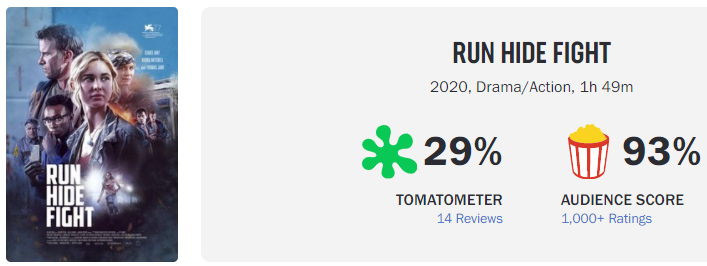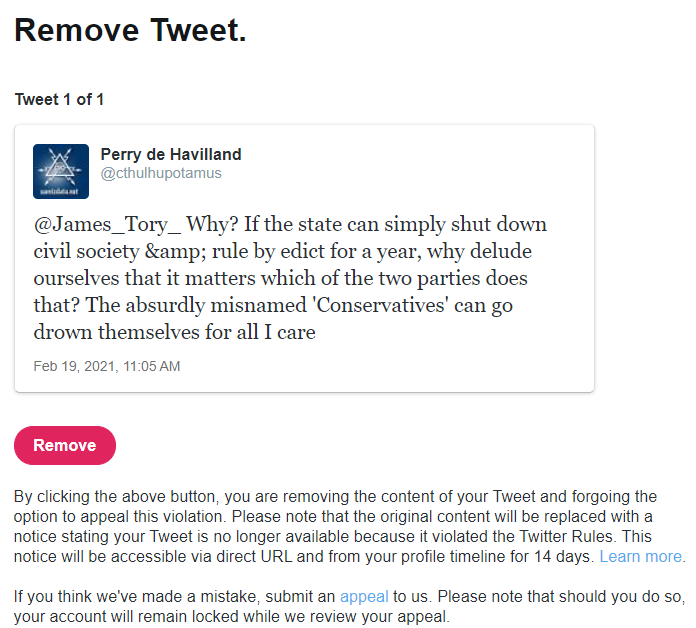We are developing the social individualist meta-context for the future. From the very serious to the extremely frivolous... lets see what is on the mind of the Samizdata people.
Samizdata, derived from Samizdat /n. - a system of clandestine publication of banned literature in the USSR [Russ.,= self-publishing house]
|
I have a research background in the social sciences and dozens of peer-reviewed publications to my name. There’s a lot that sets off my crap detector in Ferguson’s comments – mostly to do with overestimating the validity of his own data, and using this to in effect depoliticise political questions and naturalise a kind of technocratic despotism under the guise of neutral science. I don’t think this is a deliberate conspiracy; I think it’s a predictable result of a particular way of seeing.
The political assumption is that ‘we’ as a society make decisions for the whole society (i.e., society is not an aggregate of individuals), that within this range of decisions, anything goes (the only criteria are quantitative), and that the decisions should be made based on expert data. These are highly contentious beliefs: they are not apolitical or scientific
[…]
In other words, it’s a strategy based on damage reduction, permitting or increasing human suffering so as to preserve state/Government stability (again clearly a contentious view, and again with Hobbesian and behaviourist roots). Yet Ferguson embeds this view of politics in such a way as to make it seem obvious, apolitical. It isn’t. It is a choice in favour of technocratic governance.
Ferguson’s desire not to ‘politicise’ science involves effectively making policy decisions based on the ‘expert’ conclusions arising from computer modelling. This kind of technocratic model is perfectly compatible with how countries like China are run.
– Lockdown Sceptics
Perhaps the most stark form of differend lies in what philosophical logicians call ‘The Fallacy of Many Questions’. When, in the court dock for instance, a wily prosecutor asks a witness for the defence, “And do you still have a drink problem, sir?”, the witness had better be on his toes to avoid confirming the prosecutor’s implied allegation. If he answers “yes” – well, the game is over. If he answers “no”, then he implies, at least, that he has had a drink problem. One hopes that a good judge would overrule this question, on grounds of its leading the witness – that is to say, leading him without his knowing it to confirm some version of the drink-problem narrative, the framework of the question having excluded the option that there neither is nor ever was a problem with alcohol consumption.
Owen Jones’s ‘Denier’ allegation commits a similar fallacy: either Sikora, Gupta et al. do not deny ‘Covid’; or they do deny ‘Covid,’ in which case they are cast in the role of refusing to accept that Britons have this year died in their thousands. The option of accepting that there have been deaths but rejecting that they have been extraordinarily due to a ‘Covid pandemic’ is taken out of play.
– Sinéad Murphy discussing An Incredible Berk of Staggering Ignorance.
The “differend” is not just a difference of opinion, it is a disconnect between fundamentally different world views. This is a discussion about what in these parts we refer to as “meta-context”, the unspoken & largely unexamined axioms that underpin how people understand everything.
When I read this zinger:
“It is absolutely clear that climate change is a threat to our collective security and the security of our nations,” said British Prime Minister Boris Johnson, who presided over the meeting.
I thought it was perhaps the most succinct summation of why (1) the ‘Conservative’ Party should be prosecuted under the Trade Descriptions Act (2) I will never vote for them again.
It is bizarre to think we can thank Russia (an enemy state run by gangsters) and India for providing the voice of sanity.
I honestly believe that if the media and ‘experts’ said that blue masks don’t work, but yellow masks do, then a significant % of the population would switch colours tomorrow… And proceed to call anyone who questions it a ‘science denier’ or ‘conspiracy theorist’.
– Zuby Udezue
“Though you can’t move for pundits and politicians demanding more public spending, the big lesson of the postwar recoveries is that with robust consumer and investor confidence there is negligible need for government stimulus. History, not abstract theory, shows that the best way to boost growth after a ‘wartime’ period such as the pandemic is for the state to take a step back. This is particularly true with unemployment, which is undoubtedly a top priority, given the millions who have been furloughed or laid off in the last year. There will be countless calls for schemes and subsidies to support various groups. But we should take our cue here from post-war America, where household spending and private investment were the key ingredients for getting people back into work. Ministers should also be hard-headed about withdrawing support from companies which are no longer viable, especially once restrictions are removed. Overall, the lesson of the postwar recoveries is a simple one: with robust consumer and investor confidence, there is negligible need for government stimulus. The best way to repair the damage is not through schemes, subsidies and special treatment, but by getting out of the way and giving markets the flexibility they need.”
– Jethro Elsden
We are going to get a lot of folk claiming that recovering from COVID-19 justifies a bigger state. We see this sort of commentary from the likes of former UK policy advisor Nick Timothy, who constantly talks about how Tory MPs must shed their suspicion of “industrial strategy” (translation: getting politicians and bureaucrats to support sectors they favour and predict what will be hot and what will not). Given the UK’s sorry history in this regard, it is hard to have to summon breath to point to the foolishness of this.
“The glacial pace at which we’re being handed back our liberties is a stark contrast to the terrifying speed at which they were taken away. The deprivations of the last year have been so many and various that it’s difficult to remember what happened when, but having to cancel Christmas plans with just five days’ notice isn’t something many families will soon forget.”
– Alys Denby
Governments don’t oppose gig economy jobs because of a concern for working conditions, they do it because “real employees” are the most heavily taxed people in the economy, and the more of them there are the more the government can milk them for their outrageous vote buying schemes. Employees are much easier to manage and control both by employers and bureaucracies than freelancers. Consequently, bureaucracies prefer them.
– Fraser Orr
Two days ago the BBC reported that the Supreme Court had ruled that Uber drivers are workers rather than being self-employed.
With what glad hosannas did the drivers greet the news of their liberation!
Er, no. As Sam Dumitriu writes in CapX,
Putting questions of legality to one side, it’s clear Uber’s business model works for drivers. If you don’t believe me, just ask them. Countless surveys have found that the majority of Uber drivers are happy with the status quo and would not sacrifice flexibility for greater security.
A survey carried out by Oxford University academics Carl Benedikt Frey and Thor Berger, in partnership with Uber, found that drivers reported higher levels of life satisfaction compared to other London workers, despite on average earning less. And, counter to the conventional wisdom, drivers typically worked full-time in other jobs before choosing to shift to Uber. Furthermore, more than four-fifths of drivers agreed with the statement: ‘Being able to choose my own hours is more important than having holiday pay and a guaranteed minimum wage’. They found that drivers would accept a move to fixed hours – but only if it came with a 25% pay rise.
Perhaps they had looked across the Atlantic and seen the results of California’s attempt to save gig economy workers from working in the gig economy:
In Uber’s home state of California, 70% of drivers backed Proposition 22, a ballot measure that created a carve-out for ridesharing services from the state’s tough laws on freelance work. The measure passed with 59% of the vote in November.
AB 5, the freelancer law which Prop 22 was responding to highlights how interventions designed to solve a problem in one market can have unintended consequences in others.
When it passed, Vox published an article: “Gig workers’ win in California is a victory for workers everywhere”. A month later they published another article: “Freelance journalists are mad about a new California law. Here’s what’s missing from the debate. The alternative to AB5 would be worse”. Two months later, Vox Media itself cut hundreds of freelance writing jobs in California.
When I saw this…

My first impulse when seeing the professional critic score compared to the ‘audience’ score was “hmm, this might be worth seeing.” 😀
It is hard to overstate the importance of trying to use alternatives to oligopolistic companies seeking control what you can see or purchase. Sadly, Amazon is very hard to avoid these days but at least people can seek out competitors in specific areas, such as e-books.
The chaps at Creative Destruction Media suggest Smashwords. Highlighting the existence of alternatives where they exist is important.
We are entering a world of tribal capitalism. See how Ben Shapiro’s Daily Wire picked up Gina Carano. There are [The Powers That Be] and there are the outlaws.
I’m an outlaw. I’m a Kulak. Molon Labe.
– Shlomo Maistre
I just got banned from Twitter, which I do find hilarious to be honest, given the things they tolerate. Have no intention of pressing that ‘remove’ button. Wotevah…

On Gab.com from now on, was moving away from Twitter anyway as more and more of the interesting people have been banned.
I foresee a steady division process in which Twitter only tolerates what Kristian Niemietz describes as “high status opinions”, with platforms like Gab, Minds and Parler etc. becoming the home for contrary views. In short, social media will be more of an echo chamber, much like it was during the ‘golden age of blogging’ 2001-2009, when you knew exactly what to expect from a given site (such as this one for example). I always saw the whole point of platforms like Twitter as being where things get mixed up and people spar across the divide. But that will increasingly not be the case, so not sure what Twitter et al are really for.
|
Who Are We? The Samizdata people are a bunch of sinister and heavily armed globalist illuminati who seek to infect the entire world with the values of personal liberty and several property. Amongst our many crimes is a sense of humour and the intermittent use of British spelling.
We are also a varied group made up of social individualists, classical liberals, whigs, libertarians, extropians, futurists, ‘Porcupines’, Karl Popper fetishists, recovering neo-conservatives, crazed Ayn Rand worshipers, over-caffeinated Virginia Postrel devotees, witty Frédéric Bastiat wannabes, cypherpunks, minarchists, kritarchists and wild-eyed anarcho-capitalists from Britain, North America, Australia and Europe.
|





